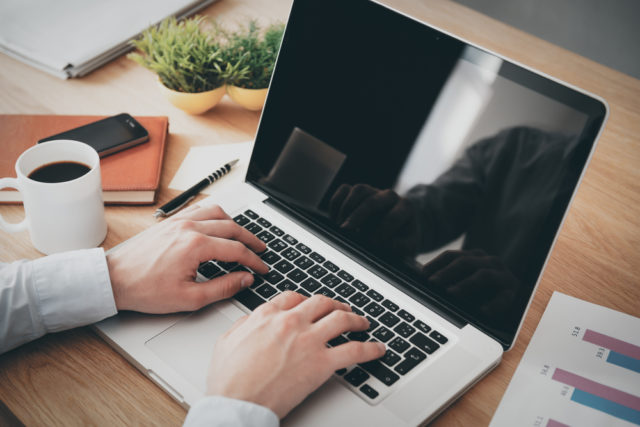When you’re at the office, working on your office computer, it’s important not to do certain things. The computer isn’t yours, and, if your company is large enough, your company may use software to check what you do, which websites you’ve visited, and may even read your emails.
The computer belongs to the company, and it’s their right to keep an eye on it.
Company IT departments usually set them up with your login information, a selection of important apps that allow you to successfully do your job.
However, cyber security experts say that weaving your personal and professional lives together via a work laptop is risky business for you and the company.
To ensure that your personal data remains private, here are some things that you should never do on your work computer given to you by your office.
Don’t store personal files on your work-issued laptop or desktop:
If you’re storing personal material on your work computer, you could be setting yourself up for some serious trouble. If you’re fired, your laptop is usually the first thing the company will it take from you
Don’t save personal passwords:
Most of us use our work devices for eight or more hours a day. They come home with us, they become our primary device, sometimes used more often than our personal devices. Therefore, it’s so easy to click the button when prompted to save password in keychain. But letting the browser save your personal access credentials risks your security. The next person to use that computer could access your private data.
Don’t allow remote access:
Maybe your computer isn’t working the way you want it to: it’s too slow. You’re worried. With remote support software being so easy to use these days, you figure it’s easier to ask your friend for help. Your office has its own people it trusts to do work on its computers. If you were on-site, you’d tell your supervisor, or at least IT, if you had a computer concern. Allowing remote access is both a security and productivity risk.
Don’t store personal information:
It is important to remember that a work device is not your property, it belongs to the company. You can’t be sure that other people at work can’t look through your files. Avoid storing personal data like music, photos or movies on a computer from work. It is not your property it belongs to the company. Keep it professional.
Don’t search for new jobs:
Your computer activity can be tracked and you can land yourself into trouble and If you’re looking for a new job, it’s a good idea to not update your resumé while on one of your employer’s devices (unless you’ve been laid off). If your employer finds out, it may be the last thing you do in that job.
Best practices for your work laptop:
- Shut your computer down after work.
- Type frequently to make it look like you’re working.
- In order to protect data for both yourself and your workplace, always make sure you’re logged into a secure, password-protected internet connection. Never leave your laptop unattended or wide-open in public spaces, especially if you handle sensitive information in your role.




 Ms Kalinga
Ms Kalinga